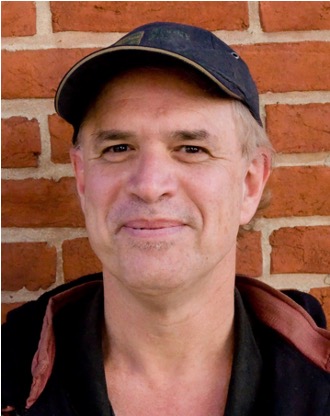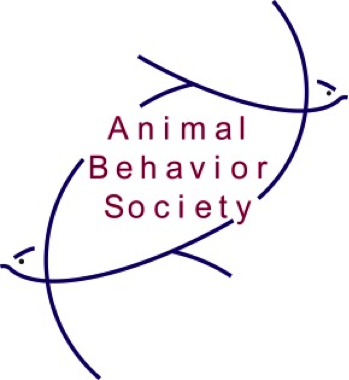Paul Weldon
By Matthew Kramer (Beltsville Agricultural Research Center, USDA) and Gordon M. Burghardt (University of Tennessee, Knoxville)

Paul J. Weldon died unexpectedly at age 70 in his Baltimore house from coronary heart disease at the end of December 2022, a sad way to end the year. He was preparing for the spring semester at Notre Dame of Maryland University, Baltimore, USA, working on various research projects and papers, and continuing his recent addiction to fossil hunting along the western shores of the Chesapeake Bay. As a pioneer in chemical ecology, his contributions were diverse, extensive, and often ground-breaking.
Paul was born May 27, 1952, in Mt. Vernon, New York, and was adopted eight months later by John and Corinne Weldon, a hospital administrator and school nurse, respectively. He grew up in White Plains, NY, and Danbury, CT, and had a Catholic education through high school. His path to science was clear by his undergraduate years at Western Connecticut State University (class of 1974), where he took 'collecting trips', which mostly consisted of dragging one or more fellow students to various wilderness areas and spending time turning over stones looking for snakes and salamanders, which, if any were kept, had to be sneaked into the basement of his parents' house, where he lived.
His undergraduate degree was followed by a Master's with Daniel Hoffman at Bucknell University in 1977, based on a remarkable comparative analysis of the kick and thrust foot movements in 59 species of marine prosobranch gastropods. For his Ph.D. at the University of Tennessee, Knoxville, with Gordon M. Burghardt, he worked primarily on the chemical recognition abilities of ophiophagous snakes and their prey, but was also involved in many other projects with an ever-expanding network of student, faculty, and reptile enthusiast collaborators. Paul graduated in 1984, joining the faculty at Texas A&M University, but eventually became unhappy there because, at that time, there was little interest in zoology at the whole organism level. He moved, in 1992, to Washington, DC as a Smithsonian Associate (retaining that affiliation throughout his career), and in 1994 joined the faculty at Notre Dame of Maryland University, where he taught until his death. Almost everyone who knew Paul found him to be a somewhat eccentric, inveterate scholar, balanced by extraordinary generosity, loyalty, and quick wit. Although never married, on several occasions he took in and housed people that he did not know well, but who for one reason or another needed temporary help, and greatly appreciated the support. His neighbors equally held him in high esteem. He frequently stopped by with a present, a CD, book, or mollusk shell, often enough to make one wonder how to reciprocate, and many who knew him possess mementos of his thoughtfulness. In recent years he gave cleaned and spray-lacquered fossil Miocene mollusks embedded in matrix that he had collected. He was a fan of electric blues guitar (and played quite well himself) and rockabilly; many of us remember accompanying Paul to concerts and shows and later discussing and dissecting them.
He kept his research (through his association with the Smithsonian Conservation Biology Institute) separate from his faculty appointment, and managed an active career as both a researcher and a professor at a predominantly teaching college. He was serious and enthusiastic about instruction; students recognized this and reciprocated, he was held in high esteem among both students and other faculty at Notre Dame, where he was honored with the Mullen distinguished teaching award in 2007. Many of his efforts to expand his students’ exposure to science, such as with lecture series similar to ones at major universities, and field trips, where he invited students to participate on his own research projects, and trips to various natural history museums, made the undergraduate biology experience at Notre Dame unique for a small college. Several former students related how inspiring his classes were, how well he could connect to students, and how he had a strong impact on their careers; high accolades indeed for a teacher. He also supported faculty in other departments, for example collecting surplus scientific glassware for a project by a Notre Dame Art Dept. faculty member.
His research centered on chemically mediated interactions in animals, often with an evolutionary, adaptive, or ethological slant, and although he worked on species as diverse as mosquitos and monkeys, he had a strong bias towards reptiles. He took advantage of experts' untapped knowledge for several important papers. An example is 'A survey of birds odorous or unpalatable to humans: possible indications of chemical defense' (with J. H. Rappole, J. of Chemical Ecol 1997, 23: 2609–2633), which was based on a survey of field and museum ornithologists. This paper was the genesis for the field of chemical defenses in birds. Indeed, his ability to mobilize an extensive network of collaborators is the likely reason he was able to answer such diverse research questions so successfully. He was a creative scientist and sometimes tackled questions posed by laymen, such as 'Does human scent bias the survival of bird nests?' (Ibis 2021, 164: 1-12), and the role of human body odor ('Are we chemically aposematic? Revisiting L. S. B. Leakey’s hypothesis on human body odour', Biol. J. Linnean Society 2018, 125: 221-228). His knowledge of the literature was encyclopedic and he authored or co-authored many review articles, synthesizing information from papers that sometimes only peripherally or unintentionally had results relevant to the focus of the review article. He had articles in surprisingly diverse research areas involving many taxa; it was hard to keep track of all the different research avenues he simultaneously pursued. He was an inveterate letter (and later, email) writer and had strong opinions about both theoretical issues and personalities in ethology; he could be quite persuasive in his arguments, dredging up tidbits of obscure data that informed his position. Remarkably, in this age of emphasis on accruing funding, Paul managed to conduct his extensive research using only small grants and formal institutional collaborations (giving him access to specimens and laboratory space/materials), depending on collaborators for financing chemical analyses, some sample collecting, and occasional hosting on his travels to obtain samples or run experiments.
Paul will be missed by many. A video of a memorial service held in January, 2023, is available here where tributes and stories, both moving and hilarious, are recounted by colleagues, friends, students, and especially by friends from his graduate school days.
Donations in Paul's memory can be made to: Corinne A. Weldon Award for Nursing, Notre Dame of Maryland University, Institutional Advancement, 4701 N Charles St, Baltimore MD 21210.
